#452 – Emmy Contending Editors Talk
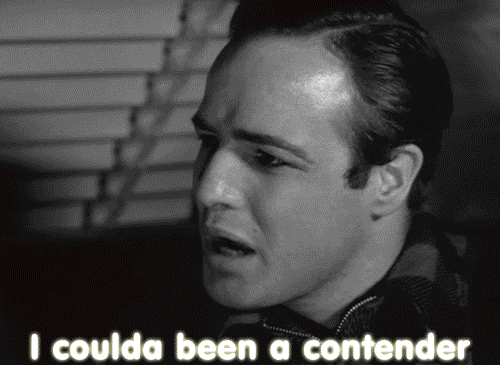
It's that time of year again when the Emmy nominations are up for consideration.
If you're eligible for either a nomination or to vote, then I'm sure you've already been researching what might be the most worthy shows this time around.
If (like me) you're not eligible to participate, hopefully, you've been watching some of this fine editorial craftsmanship with enough focus to be inspired in your own cutting.
This issue of Cut/daily features selected highlights from a quartet of interviews with four talented and highly experienced editors who have cut hard-hitting documentaries, top-tier drama, award-winning comedy, and everything in between.
All of whom are contenders for an Emmy nomination!
However, you can also enjoy an unedited download of all the editing wisdom shared by our four fine interviewees in this extended edition:
#452 – Emmy Contending Editors Talk (Extended Edition
(Read time: 23 mins)
But before we dive in, I have a question for you...
My favourite takeaways
Pace is everything. Pace and performance supersede continuity and shot choice.
There's a rhythm to the dialogue that needs to be honored even if it means breaking some rules. Learning how to hide it when you break the rules is the secret we have to master.
— Matthew Barbato
Plus, Matthew shares a ton of great tips in his answer to the first question below...
Experiment against instinct
Once the scene has shape, I leave it for an hour or so and look over the assemblies from the day before, then return back to the scene to see if it's a total car crash or somehow the foundations of where to begin.
Next I’ll likely roll around in different performances against my initial instincts, sometimes this unravels an alternative approach and other times it doesn’t.
— Yan Miles
There's no science to funny
Timing is essential in all genres: drama, documentaries, everything. But I’ve found that when I cut comedy, it’s really the cornerstone.
One frame off here or there can really ruin or make a joke. Staying on something too long can feel like you’re begging for a laugh, but also, sometimes, that linger can add an awkwardness that makes it even funnier.
It’s not a science at all; you really have to try things out to see where the biggest laugh is.
– Todd Downing, ACE
How to get hired
If someone is passionate about our craft, that will shine through above the rest.
When I’m hiring an assistant editor, I’m looking for a creative collaborator and someone who is passionate about the story.
Let that be the guiding light for a career, and it will be a success.
– Amelia Allwarden, ACE
Andor Season 2 – Yan Miles
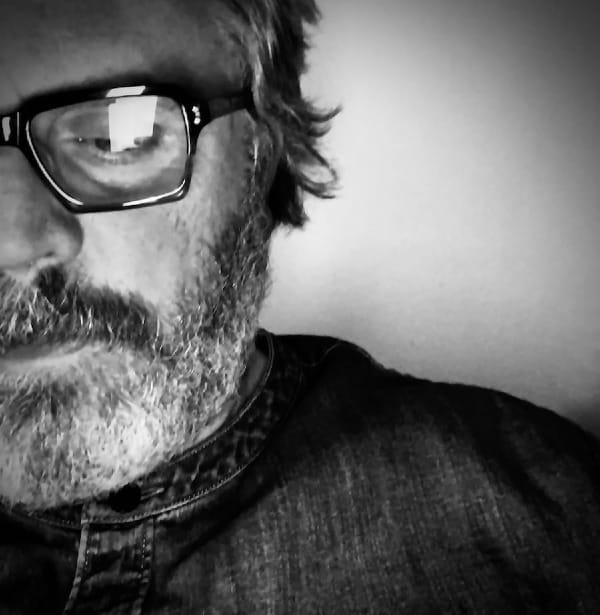
Yan Miles is no stranger to the Emmy's with two awards under his belt already for his work on The Crown and Sherlock, alongside other highly acclaimed TV series such as Game of Thrones, White Lines and Rome.
He's also edited a trio of feature films: Sharper, William Tell and Oasis.
Having cut the concluding two episodes of Andor season 1, Yan was back to cut three episodes (ep 7, 8, 9) of the second, and final, season.
What aspect of working on Andor are you most proud of - even if no one else might notice?
I’m proud of all aspects of working on Andor, especially my A team in the cutting rooms - Lincoln, Marta, and Miguel. They were my very own rebellion!
As for another aspect I’m hugely proud of;
During one particular moment in the midst of the Assembly and shoot of episode 208, “Who are you?" I felt we needed to delay Wilmon's attempt to find Cassian after he arrives at the Ghorman Plaza with Dreena.
I visited the set to explain my thoughts to Janus (Director), who then promptly suggested that I shoot the scene the following day with a splinter unit of only one camera, Mo, the actor who plays Wilmon, and a dozen Gorman extras!
It’s not every day you get to shoot a very small part of Star Wars, and, luckily for me, it did solve the story of Cassian and Wilmon searching for one another.
You've cut both feature films and top-tier TV - what skills have you learned on one that has helped you on the other?
(Or it doesn't matter, it's all editing, even if the format/structure is different and there are different storytelling requirements!)
That’s an interesting question, and to a large degree, yes it’s all editing.
TV has elevated to a special place in recent years, with many great feature filmmakers crossing over from film to TV and vice versa. As a result, we’ve seen the quality of productions elevate massively.
As for the differences in the discipline of editing between the two mediums?
TV definitely has more time for character development, whereas film has more patience and scope for silence, in my opinion.
I’ve learnt lots from television, like re-framing which character should have a certain POV more than other characters in scenes. Taking out characters or even removing whole storylines.
Conversely, in feature film editing, I’ve honed the craft of creating montages to change the pacing and they can also provide a mechanism to help lose some duration.
That said, I always say that really good TV is akin to film.
With Andor Season 2, for example, I cut a block of three episodes in the same time period. In theory, you could string eps 207, 208, and 209 together and it would play like a film.
Tony Gilroy and his team write this way - no gaps and no wasted scenes.
Laser focused.
What’s your daily work routine?
After a strong coffee, I sit down to watch dailies with my Assistants.
Whilst viewing, I tend to think/ feel my way through some notes I may scribble down, but mostly, some visual/narrative formation takes place.
I ask questions of opinion with the gang and if a scene is complete I assemble it together pretty quickly not worrying too much about where it’s heading.
Once the scene has shape, I leave it for an hour or so and look over the assemblies from the day before, then return back to the scene to see if it's a total car crash or somehow the foundations of where to begin.
Next I’ll likely roll around in different performances against my initial instincts, sometimes this unravels an alternative approach and other times it doesn’t.
The next day, I’ll do it all again, and now this scene informs today and so on and so forth.
Alongside this, having talked to the director regularly, I see what their intentions are in the takes and setups. You have continuity notes, of course, but I like finding the threads via the footage and the conversations together.
What’s the #1 thing that has helped you shorten your craft’s learning curve?
To listen to everyone in the room. Everyone.
Only Murders In The Building: Season 4 – Editor Matthew Barbato
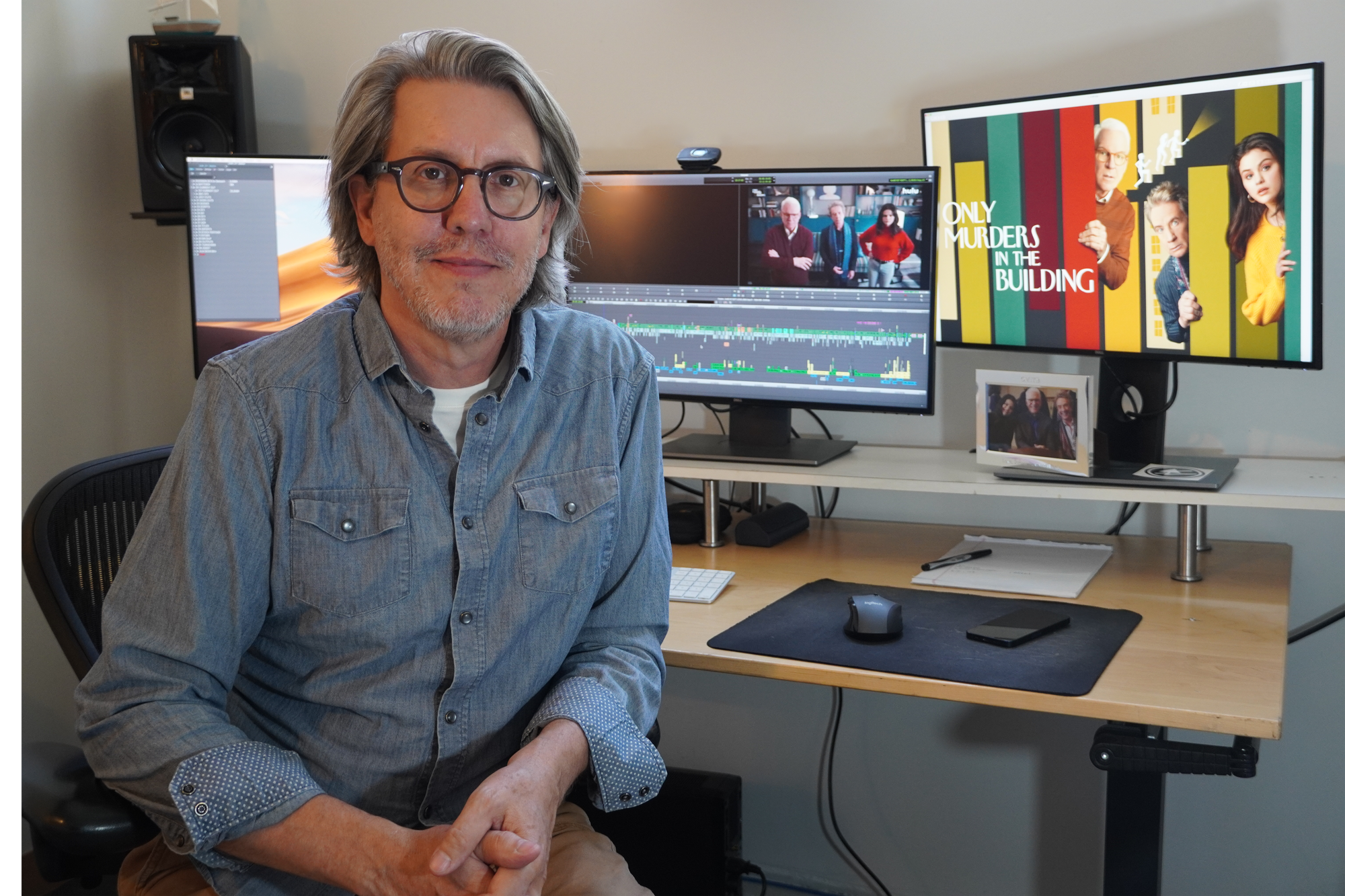
I've enjoyed all four seasons of Only Murders in the Building, partly because it's a rare breed of show that my wife and I can actually enjoy together.
Editor Matthew Barbato cut three episodes of season 1 (ep 3, 6, 9) and three episodes of season 4 (ep 3, 6, 9) while his previous credits are a roster of top comedy shows, including:
- Lessons in Chemistry
- Dave
- High Fidelity
- Veep
- The Kominsky Method
- The Good Place
What aspect of working on Only Murders are you most proud of - even if no one else might notice?
‘Not noticing’ is a goal of successful editing, so my hope is that no one ever says, “That episode had really great editing” – everyone should just enjoy the episode.
However, besides cutting a really precise comedic scene like the ‘spit take’ scene between Charles, Eugene, and Vince in episode 403, the things I'm most proud of on this show are lines we removed to make the scene work better and the moments that we manufacture because we discover a need in Post to patch a hole in the storytelling.
Anytime we get to contribute, solve a problem, or add something that wasn't intended, is extremely gratifying.
Episode 406 BlowUp was an episode where there's a lot more editing involved than meets the eye. Told as a found-footage documentary, many of the scenes are meant to be experienced as single shots to give the audience a feeling of immediacy and urgency.
But there are no true 'oners' in the episode, and in fact, even the static camera scenes have invisible jump cuts in them to adjust pacing. The episode was shot very inventively by our fantastic director Jessica Yu and DP Kyle Wullschlegger, but unlike other episodes, they left a lot of choices to the editing room such as scene transitions, cutting style, etc.
The episode contains a handful of 'mini-films' created by the Brothers Sisters that each had their own avant garde editing style, so it was fun to relive my own pretentious early days to find ways to embody the Brothers Sisters style.
Once the documentary catches up with current events, the challenge was to find ways to adjust pacing when there's limited coverage. We did that with a lot of hidden edits to make the film feel raw and unedited, while also editing as much as we could get away with.
For instance, the early scene in the cab is made of two takes, joined by creating a fake rack focus in the middle.
The other big element we used to control pacing was sound. Originally Howard was in most of the scenes, silently operating the camera we're viewing events from, but he provided us with a great opportunity to comment and react to the events that really helped fill in pauses and add comedy that wasn't originally there.
We filled out the soundtrack as much as we could.
There's another moment when the drone falls out of the sky into the courtyard and in the silence that came next, we added Uma (our grouchiest neighbor) yelling profanities from below, and that added an extra joke that really caps the scene.
Lastly, I was able to add little jokes with the use of chyrons and watermarks that both helped subtly lead the audience and hopefully provide some easter eggs.
What aspect of editing comedy do you think most other editors don't understand/underestimate?
Pace is everything. Pace and performance supersede continuity and shot choice.
There's a rhythm to the dialogue that needs to be honored even if it means breaking some rules. Learning how to hide it when you break the rules is the secret we have to master.
Another thing that makes comedy editing very particular is that it's so subjective.
In drama, thriller, horror, etc. most people will respond similarly to moments of fear, anger, and sadness, but what makes someone laugh is very idiosyncratic, so it always comes down to instinct, and you will never please everyone.
And your parting piece of advice?
There are a few pieces of advice I like to share.
First, if you know what kind of work you most want to do, whether it's film vs. TV or comedy vs. drama, try and get your start on those projects as soon as you can because as time goes on, it gets harder to switch between genres and formats.
Plus, early in your career you have the most flexibility to make the sacrifices and compromises it may take to hold out for the kind of jobs you want to pursue. That said, all experience is useful and you never know what may lead you to your goals.
Also, remember that as editors, it's our job to craft the best out of what we are given.
That requires looking at the footage with fresh eyes, solving issues and thinking outside of the box for ways to make the footage tell the story in the best way possible.
Lastly, trust your instincts and don't try to second guess what your director or producer may want.
It's your job to bring your skills and instincts to the material, offer something that may not have been envisioned and THEN collaborate with your directors/producers to execute their vision.
Overcompensating – Editors Amelia Allwarden, ACE & Todd Downing, ACE
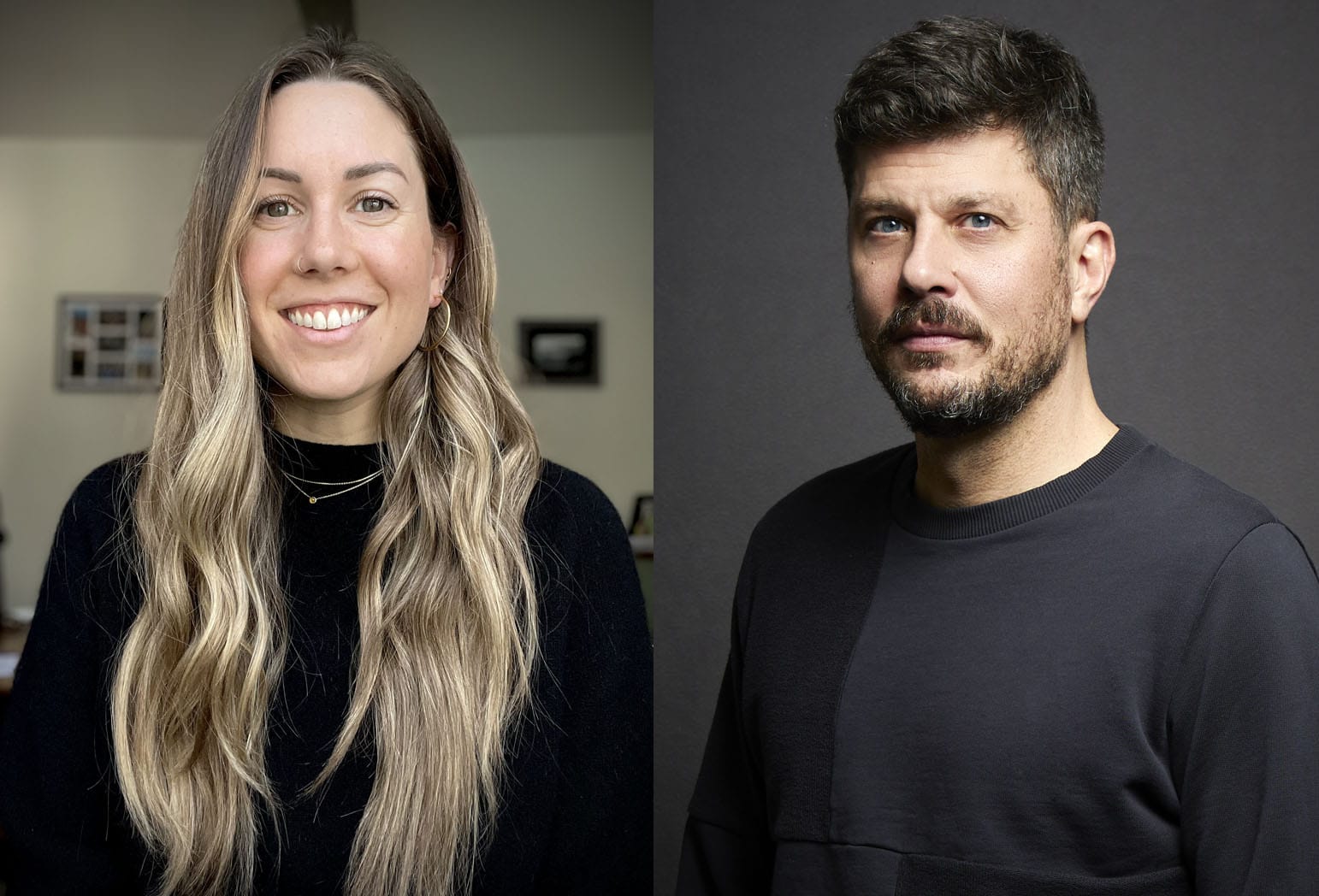
Amazon Prime's new MA-rated comedy, Overcompensating, looks like a hectic ride with a lot of editorial hairpins to navigate.
Thankfully we've got two of the shows editors, Amelia Allwarden, ACE and Todd Downing, ACE to guide us through it.
Amelia was also interviewed as part of a previous ‘extended edition’, last time as a member of Dune Prophecy's quartet of editors. Quite a different show!
Amelia's previous credits include:
- Dune Prophecy
- Sunny
- Westworld
- Little Fires Everywhere
Todd Downing, ACE, has an eclectic mix of credits to his name, including some of the UK's biggest factual shows (Dispatches, Panorama, This World) as well as editing for Frontline in the US.
Plus 16 episodes of Difficult People, 11 episodes of Russian Doll, and cut Clipped and Hello Tomorrow!
It seems like he can handle it all!
What aspect of working on Overcompensating are you most proud of - even if no one else might notice?
AA: What I'm most proud of in editing Overcompensating is how we weaved the comedy and the real human emotional drama together.
There are some ridiculous moments in the show, which I think are amazing, and there are some downright funny moments, as well as some really emotional moments.
I think as editors, we have the luxury of being able to play with dialing up and down each of those pieces within the show. I'm proud of how it came out because I feel like overall, people will say the show is a really fun time, but I think some people will be surprised at how emotional they will feel at times when the story goes on.
For example, in the scene at the end of episode 2, Benny and Carmen are sitting outside of Domino's, eating pizza. I’m incredibly proud of this scene because of how it weaves between fun bantery moments and then moments of real emotional intensity. I played with the places where I would let a 2-shot play out vs cutting between the singles to create this balance.
What was the biggest challenge you faced on the show, and how did you overcome it?
TD: It was the same on Overcompensating as it is for any show: the pilot.
To be even more specific, the first ten minutes of the pilot.
We worked on that for months to get it right. The show is an ensemble, so we’re introducing tons of characters in a very short amount of time: Young Benny, College Benny, Benny’s mom and Dad, Benny’s sister Grace, Carmen, Hailee, Peter, and a bunch of supporting characters as well.
It was tough to find a balance of showing who these people are, getting the story started, and keeping the audience laughing all at the same time. In the end, we had to cut some really brilliant jokes, but that has to play second fiddle to the story, and I do love how it ended up.
What do you now know about your work that you wish you’d known when you first started?
TD: How much better my pension would be if I started working in scripted instead of docs!
That said, I do love editing documentaries as well.
What did your biggest professional failure teach you?
TD: Depends on what you mean by failure. If it’s about shows or films that bombed, then I’ve learned nothing!
I’ve worked on some shows I thought were absolutely fantastic that got cancelled after one season or films that had problems finding distribution.
You just never know how the audience is going to receive something because there are so many variables: the political and social climate when it drops, what other shows are out that are similar, the vibe people are looking for, the random reviewer who didn’t like it, did the marketing do its job.
I try not to expect anything one way or another when a show or film is released because I’m constantly surprised.
What’s the #1 thing that has helped you shorten your craft’s learning curve?
AA: I rely really heavily on my peers. When I first began working as an assistant editor, I had many peers in the same level of assisting as me. I called them all the time with questions - how do I add a node on script sync? What does this Avid error mean, and how do I fix it?
I carried that idea with me when I transitioned to editing.
I rely on my fellow editors on the project. If I’m cutting on a series, and I didn’t edit the pilot episode, I talk to the pilot editor and get a feel for how they put the show together. This helps inform me and my craft on my episodes.
If I’m starting a first-season show (as I tend to do a lot) with a team of editors, I try to converse with them as much as possible so we can collaborate heavily from the start.
Todd was a real pillar for me in terms of bouncing ideas off of him - showing him my successes and failures - and not being afraid to show him a really rough edit of a scene so that I could get his take on it.
Collaborating in this way really made Overcompensating better in every way!
Huge thanks to Yan, Matthew, Todd, and Amelia for taking the time to answer these questions!
So remember, pace is everything and cut daily.
3 from the Archive
Enjoy reading Cut/daily? There are hundreds more insights like these waiting for you when you upgrade to lifetime access to the entire Archive for only $49.
- #181 - Why Comedy Editors Get Paid More...
- #217 - Best Practices for VFX Workflows
- #398 - How to Crawl Inside The Mind of a Director
Read more, learn more, earn more, do more.
Save money in Post with Cut/daily!
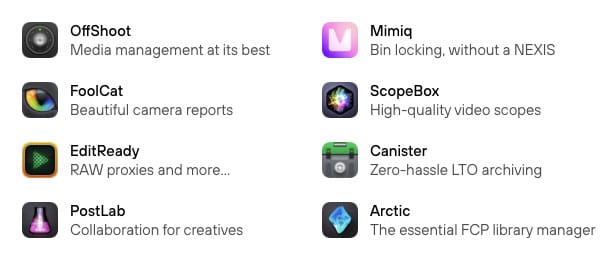
Hedge makes joyful software. I say that because every time I use Offshoot to safely copy files, it literally brings me joy. It's beautifully designed, easy to use and 100% effective.
What more do you want?
PostLab, EditReady, and ScopeBox are also essential items in my Post-Production arsenal. They will serve you well.
Save 10% on any product with the exclusive discount code: "jonnyelwyn"
